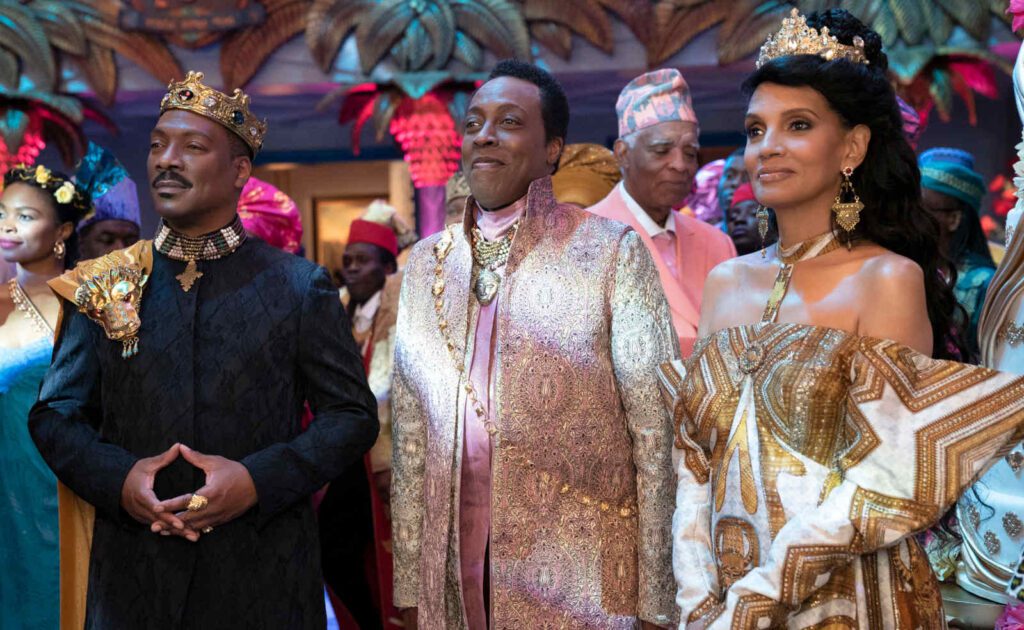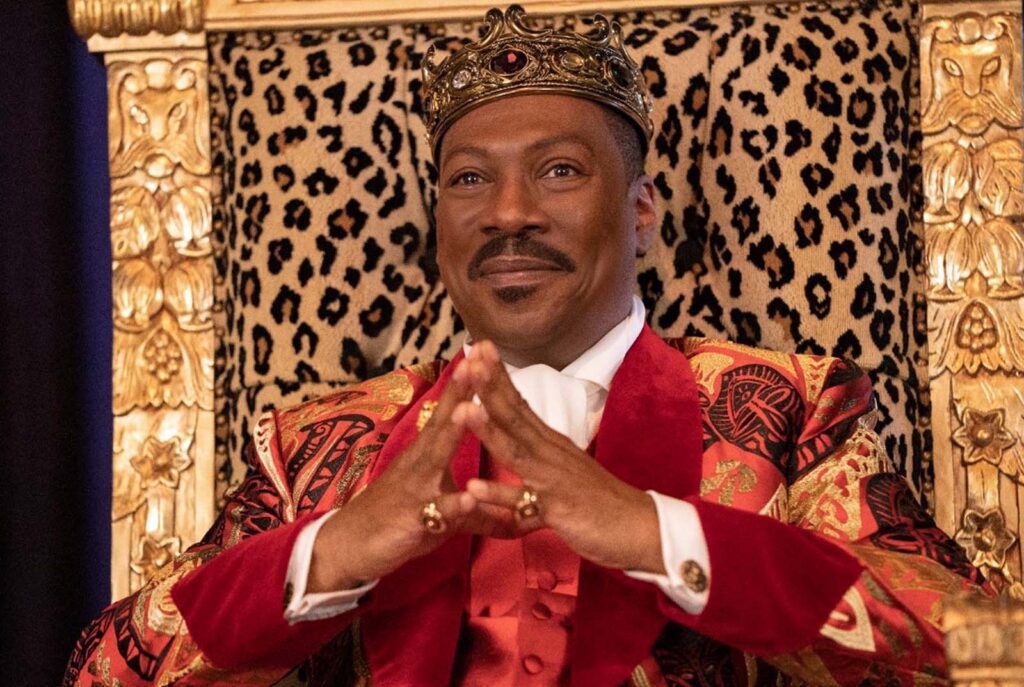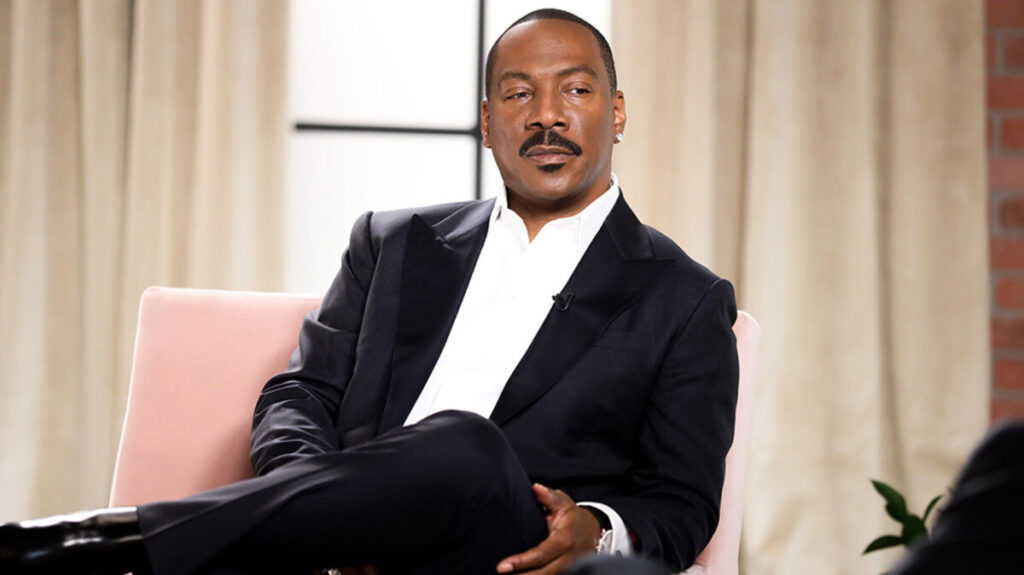
Is Eddie Murphy’s net worth lower because of…Rick Ross?
Could the estates of legendary comedian Eddie Murphy and the inexhaustible Rick Ross be any more opulent?
It’s a star-studded ride through the real estate and financial marvels of two entertainment industry giants, where we’ll explore vast mansions and private islands, tracing every financial step to uncover the big, buzzy life they’ve built from the ground up. But what about the actual net worth numbers? Especially the net worth of Eddie Murphy himself? Let’s take a look into his net worth and see what we can find.

Trading Laughs for Luxury
When Saturday Night Live propelled Eddie Murphy to the stellar fame in the early 80s, did we think he would become one of the highest-grossing actors in film history, nudging a close to $7 billion worldwide box office mark? With an enviable net worth of $200 million and being one of the top-earning actors, pulling in frequently $20 million per movie during the peaks of his career, Murphy didn’t just stop at stardom.
His investment in a breathtaking 40,000 square-foot mansion in the exclusive Beverly Park neighborhood of Beverly Hills, and his purchase of private islands, emphasizes the lucrative art of flipping laughs into tangible assets.
Remember when Murphy’s first significant film paycheck landed on his lap in 1984 for Best Defense? That $1 million might have been a surprise back then, but with the cash flows from films like Beverly Hills Cop II, Coming to America, The Nutty Professor, and backend royalties, the seasoned actor has smoothly transitioned from on-screen laughter to off-screen luxury.

Eddie’s Estates and Exquisite Islands
Zoom into his real estate wonders, such as the majestic mansion with 32 rooms – nine bedrooms and nine bathrooms, encompassing additional treats like a large pool, tennis court, library, and even a bowling alley. Oh, and let’s not forget the private islands. In 2007, Eddie flashed $15 million for a 15-acre paradise in the Bahamas called Rooster Cay, painting a picture of sequestered luxury where the waves kiss his doorstep.
Eddie’s story not only tells a tale of shrewd investments but also about channeling fame into fortunes which has been emulated by others in the entertainment space. One particular rapper comes to mind: Rick Ross. But what ties Eddie Murphy to Rick Ross besides their affluence and assets?
Ross, known for rap hits like ‘Stay Schemin,’ has also maneuvered his career, worth an estimated $150 million, into a real estate empire that includes extravagant homes across the nation. His savvy property moves could potentially push his net worth well beyond its current standing, making him a maestro both in music and mansions.
One of the most buzzworthy moves in Ross’s portfolio was the acquisition of Evander Holyfield’s sprawling estate in Fayetteville and its subsequent transformation into the Zamunda Palace in Eddie Murphy’s 2021 sequel, Coming 2 America. Turning 322-acres of opulence into a film set not only brought two entertainment moguls under one (extremely large) roof but also solidified Ross’s place as a strategic investor.

Miami Magnificence and Why Ross Invests
And the rapper isn’t slowing down. Fast forward to August 2023, Ross snatched up a stunning Miami estate for a hefty $35 million, signaling his mastery in choosing properties that aren’t just homes, but statements of luxury and wealth.
Nestled in the super-exclusive Star Island community, with neighbors like Diddy and Jennifer Lopez, Ross’s six-bedroom, eight-and-a-half-bath mansion is a testament to his penchant for the extraordinary.
But why does Rick Ross own so much real estate, especially when his successful music career could allow him to coast comfortably? Inspired by his mother’s wise advice to invest in what you can touch, Ross funnels his millions into properties that are both a financial strategy and a tangible testament to his success.

Connecting the Dots: Eddie and Rick’s Luxe Lives
Despite their different paths in the entertainment industry, Eddie Murphy and Rick Ross have both uniquely harnessed their financial prowess into creating empires that extend beyond the screen and the stage.
While Murphy converted his comic genius into an astounding real estate and financial portfolio, Ross transformed his rhythmic riches into a diverse collection of properties, echoing the sentiment that when it comes to celebrity investments, the real estate game is far from played out.
And isn’t it even more interesting, how two seemingly disparate careers intersect through a mansion in a film sequel, giving us a glimpse into the world where fame, fortune, and real estate converge in a grand spectacle of luxury? How might the next generation of stars utilize their wealth in the tangible, and often dazzling, world of property investments?



